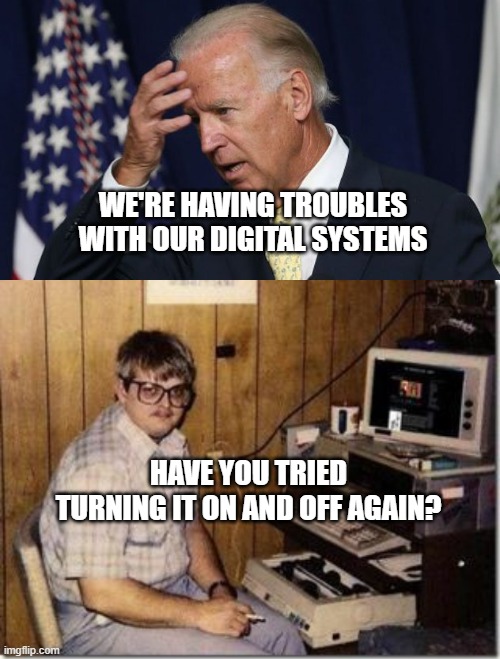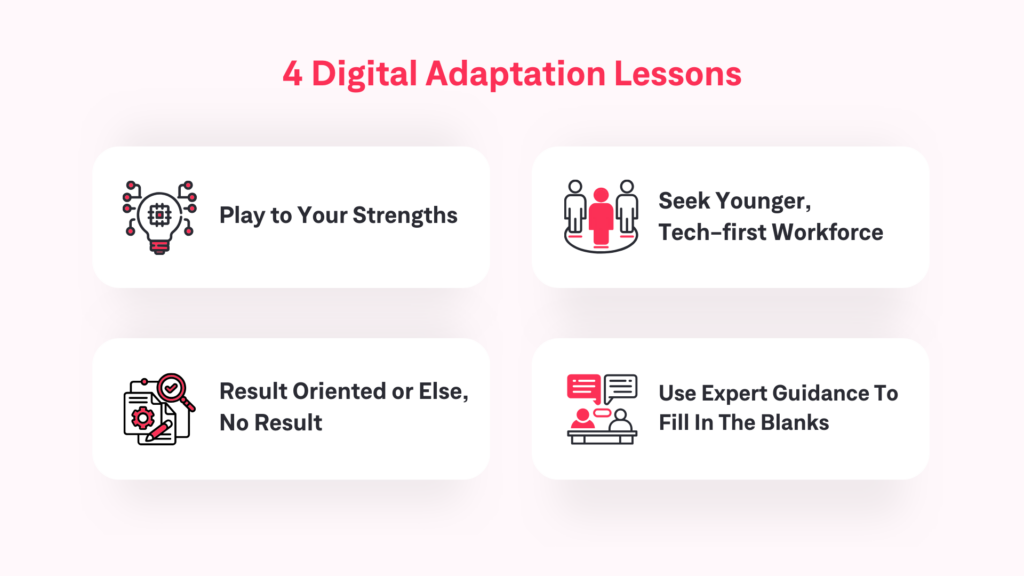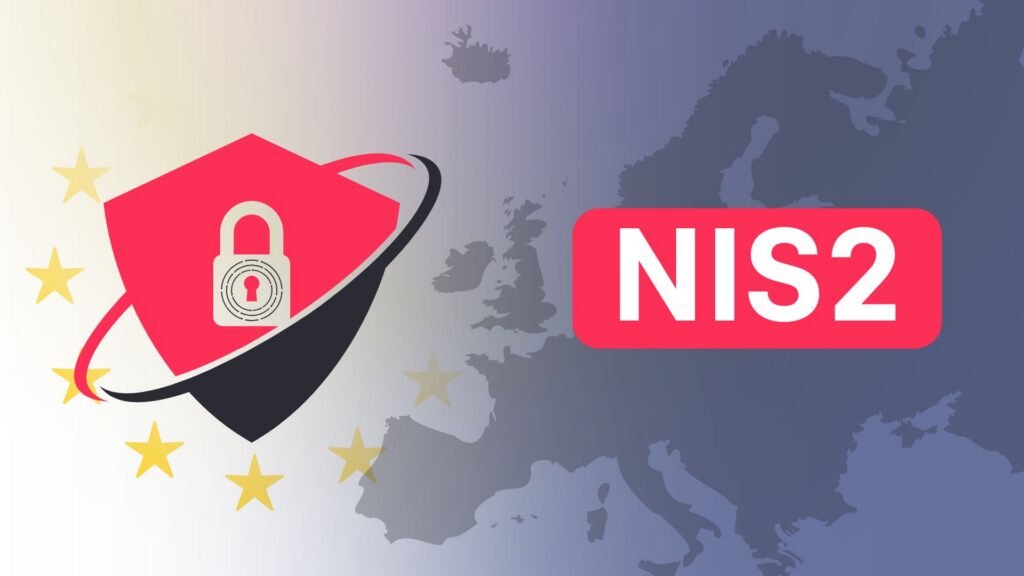In any modern work environment, software is no longer a supporting factor. It is the work environment. By slowly taking a spotlight from paperclips and bulleting boards – and deservedly so – it accommodates fast collaboration, work tracking, project management, and even leisure activities. Yes, that includes whimsical GIF sharing and chucklesome channels.
Meanwhile, the story is different on the flip side. The big players are grappling to keep up with the sudden twists and turns of technology. The change is sluggish. Not everyone’s seamlessly embracing the fun and quirky digital chat rooms. Plus, according to the latest research from BCG, a whopping 70% of digital transformations miss the mark on their goals.
Of course, the existence of vibrant chat rooms that buzz with the activity doesn’t necessarily imply a high level of digital proficiency… It can, in truth, be quite deceptive. The stark disparity between overseeing a small startup and navigating the bureaucratic leviathan of government operations should be as clear as daylight. However, having said that it affords us a window into the distinction in the collective mindset. A distinction that could potentially offer valuable insights to the government domain.
What is Bogging Down Digital Progress in Government?
Government organizations worldwide often struggle to digitize. With the inertia of bureaucracy, legacy systems, and data security concerns, it’s only natural to witness this reality. Before we use startups as a source of inspiration, let’s first look into the nitty-gritty of the public sector.

Flexibility issue: In the public sector, it’s tough to keep up with the demands of tech-savvy workers. They want to pick where they work and focus on productive hours rather than fixated-at-a-chair hours. With that said, the public sector in general remains traditionally less flexible. The IDC European Public Sector survey found that almost half (49%) of all public organizations haven’t been able to provide access to all systems remotely. Additionally, 45% of employees had problems accessing work-related services.
Bureaucracy issue: In the government world, this is a big roadblock. It makes things slow and complicated. There are lots of steps and decisions, which can make it tough to propagate digital changes. For example, a simple tech upgrade that takes a few weeks for a startup can take months or even years for the government. And, once they finally make changes, it’s tough to spread those changes to everyone in the government.
Legacy Systems: Legacy systems, often outdated and clunky, are a huge obstacle to digital adaptation in government. These systems are deeply entrenched and difficult to replace without causing disruptions. In many cases, trying to swap them out for something better is tricky and might cause a lot of costly concerns.
Data Security Concerns: Governments handle an extensive amount of sensitive information. So keeping it safe is a major deal. Data breaches can have severe consequences, both in terms of public trust and national security. Ensuring robust data security measures is a top priority for the public sector, which can slow down the adoption of new technologies.
What Startups Get Right?
Maximizing Their Strengths: Startups navigate with limited manpower, tight budgets, and looming deadlines. Instead of hunting for the perfect employee setup, they focus on leveraging their distinct strengths, racing towards the break-even point.
Nurturing a Digital DNA: Startups cultivate a culture where technology takes center stage. This fosters innovation, efficiency, and a forward-thinking ethos. Employees are empowered to explore and experiment with digital tools, creating an environment that thrives on innovation and adaptability.
Goals as Guiding Stars: Stakeholders, investors, and their own convictions drive startups towards a goal-oriented approach. It’s not just a best practice; it’s a necessity to defy dismal statistics. Embracing agile methods is not a trend; it’s the only path to achieving goals in the modern business landscape, where tech proficiency is paramount.
Smart Amid Constraints: Confronting resource shortages and lacking internal expertise, startups strategically seek external support and outsourcing services. This allows them to tap into specialized skills, accelerate growth, and ensure their limited resources yield maximum impact.
4 Essential Lessons Governments Can Apply

#1 Play to Your Strengths!
Startups deftly handle the trio of challenges—limited manpower, tight budgets, and looming deadlines—by leveraging the unique strengths embedded in their teams. They are dealt their cards, and just like experienced poker players, the successful ventures play the best way possible with what they have.
Now, to turn the gaze towards governments, the European public sector stands out, according to a revealing IDC report, for its knack for making work meaningful and flexible. Take a public mental health project they could be championing—employees working on such projects feel a sense of purpose in making communities healthier. That’s a greater cause beyond just daily tasks. On the other hand, their commitment to flexibility could show in policies that cater to different needs. The public sector encompasses a lot of job descriptions that could relish the hybrid work options, especially with a lesser amount of profit-making urgencies. Having flexible work hours and the option to work from home; it gives employees the freedom to balance personal and work commitments, creating a balanced work-life mix. This combination—having a meaningful mission and work arrangements that suit individuals—reveals the public sector as super desirable. As spotlighted by a revealing IDC report, boasts a strategic advantage in nurturing a profound sense of purpose and embracing workplace flexibility. The key for governments lies in a triple-pronged approach: investing in specialist skill development, instilling a sense of purpose, and weaving flexibility into the workplace fabric. By adopting these principles, governments can bolster employee retention and set the stage for a thriving and purpose-driven public sector.
#2 Seek Younger, Tech-first Workforce
The IDC survey shouts loud and clear—55% of public bodies are asking for a shift in how we help non-IT-first folks learn new skills. The knowledge gap is growing, and the old ways aren’t cutting it. Maybe it’s time for a small tweak in approach and the solution might be easier than we think.
A look around Europe will tell you that there are more people struggling with digital skills, but also more who thrive in using it. According to Eurostat, there is 28% of the population in the EU public sector aged 25-64 with low digital skills and 31% with none whatsoever. The gap between them is considerably wide, and fixing it is fairly expensive. Here’s where a fresh approach that startups cherish comes in.
Just like startups, the public sector could make an effort to attract younger, tech-savvy individuals. Sharing stories of cool projects, being present at tech events, pushing digital training programs, and looking like a modern, forward-thinking place – governments can pull this off. Joining the public sector could mean being part of a tech-driven future, and the cost? Just a smart investment in telling a compelling story.
#3 Result Oriented or Else, No Results…
In the Darwinian reality of startups, it’s either to deliver and face harsh criticism—from angry investors, dissatisfied customers, or the looming threat of failure. In simple words, startups are heavily goal-dependent.
There’s a crucial lesson here. Embracing a results-driven mindset means defining clear objectives, ensuring everyone in the organization understands them, and relentlessly pursuing success. Take healthcare, for example. When governments set concrete goals for improving patient care, measure the outcomes, and tweak strategies based on results often times results speak the truth. Estonia’s e-health system is living proof that this approach brings revolutionary results.
Being results-focused isn’t just a buzzword; it’s a roadmap to accountability, efficiency, and constant improvement—qualities that make startups thrive. Governments, with their paramount goals, stand to gain the most from this approach.
#4 Use Expert Guidance To Fill In The Blanks
In the fast-paced world of startups, where every resource and moment counts, outsourcing various tasks to experts propels growth. From finances, and HR, to in-field experts and opinion makers, marketers, and even IT agencies. Startups are well aware of their knowledge constraints and they make sure to fill the blanks with cost-efficiency. Governments can take a cue here. By borrowing a strategy from the startup playbook they can outsource digital services to IT companies to unlock specialized skills and resources, fast-tracking their journey to digital adaptation.
In healthcare, for instance, governments can enlist healthcare IT firms to streamline data management, electronic health records, and telemedicine services. For public education, forging alliances with specialized IT companies can infuse vitality into mobile app development, introduce inventive and cost-effective education access solutions (check Mirko), and implement real-time tracking systems. Outsourcing digital needs isn’t just a shortcut; it’s a deliberate move to ensure government projects unfold with precision, efficiency, and accelerated speed. In Net Group we lent our hand contributing to such large-scale projects – from digital book borrowing platforms to e-health solutions. In fact, anything that involved strategic road mapping and building complex solutions. Your project, therefore, could be the next one.
Similar insights

12 AI Cyberattacks That Made CEOs Very Cautious
21/10/2025
14 Books Smart Tech Leaders Are Reading This Fall
07/10/2025
Protect Your Crown Jewels: The Heart of Your Cybersecurity
15/09/2025
How Renown Business Executives are Using AI?
12/08/2025
Think You’re Secure? PEN Testing Will Tell You
15/05/2025
NIS2 Compliance: A Simple Guide to Get It Done Right
15/05/2025
NIS2 Directive Explained: What Your Business Needs to Do Now
29/04/2025
Net Group Expands into Germany and Acquires Cybersecurity Company
04/04/2025
AI in Supply Chains: Precision, Profit, and Practicality (Today)
01/04/2025
Let the success
journey begin
Our goal is to help take your organization to new heights of success through innovative digital solutions. Let us work together to turn your dreams into reality.